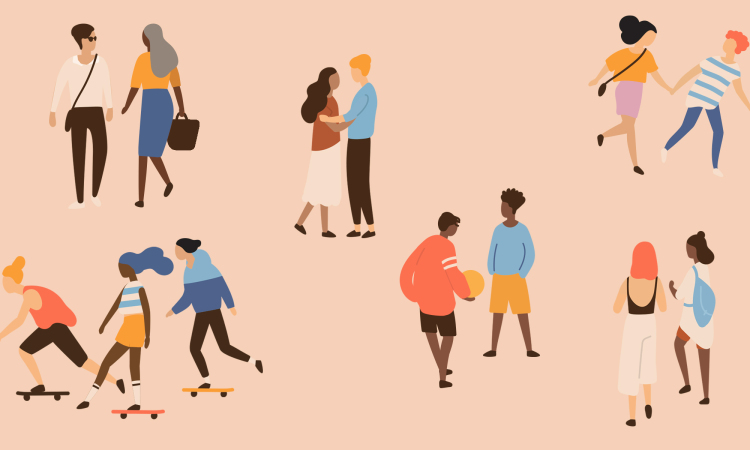Humans are social animals – we need some level of social support and social networks in order to be fully healthy. We form relationships from birth and require things like love and nurturing in order to stay socially healthy.
Our first relationship is usually with family – they raise us, they teach us, and they model love. We learn our communication patterns and coping skills from family, whether it is a mother and father, a single parent, a grandparent or aunt/uncle, an adoptive family, or a foster family.
There are several different conceptions of love. One is Dr. Robert Sternberg’s triangular theory of love, which identifies three main components: intimacy, passion and commitment. Different types of relationships may exhibit different types of love.
Dr. Helen Fisher has studying what happens in the brain during love – see the video below.
There is a spectrum of positive and negative traits in relationships. Healthy relationships are based on equality, independence, and respect. https://www.loveisrespect.org/wp-content/uploads/2017/07/Relationship-Spectrum-final.pdf It’s also important to set expectations for your relationships and keep healthy boundaries – https://www.loveisrespect.org/pdf/Healthy_Relationships.pdf
Communication is important for healthy relationships. Here are some things important for good communication – https://www.loveisrespect.org/healthy-relationships/communicate-better/. Additionally, partners must understand each others’ ways of communicating so that they have more realistic expectations – https://www.psychologytoday.com/us/blog/contemplating-divorce/201502/how-do-you-define-love.
